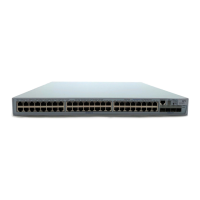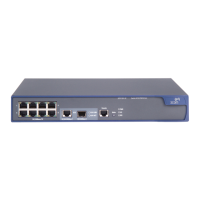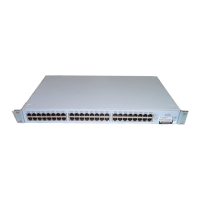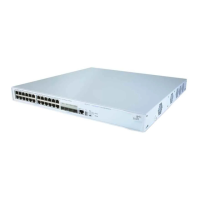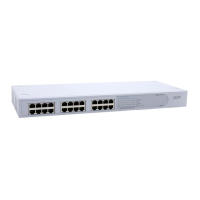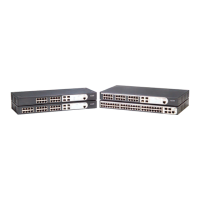Configuring OSPF Network Types 295
area, these LSAs will be translated into type 5 LSAs for advertisement to other
areas.
Non-backbone areas exchange routing information via the backbone area.
Therefore, the backbone and non-backbone areas, including the backbone itself
must maintain connectivity.
If necessary physical links are not available for this connectivity maintenance, you
can configure virtual links to solve it.
Prerequisites Before configuring an OSPF area, you have configured:
■ IP addresses for interfaces, making neighboring nodes accessible with each
other at the network layer.
■ OSPF basic functions.
Configuration Procedure Follow these steps to configure OSPF area parameters:
n
■ It is required to use the stub command on routers attached to a stub area.
■ It is required to use the nssa command on routers attached to an NSSA area.
■ Using the default-cost command only takes effect on the ABR of a stub area
or the ABR/ASBR of an NSSA area.
Configuring OSPF
Network Types
OSPF classifies networks into four types upon link layer protocols. Since an NBMA
network must be fully meshed, namely, any two routers in the network must have
a virtual link in between. In most cases, however, the requirement cannot be
satisfied, so you need to change the network type using commands.
To do… Use the command… Remarks
Enter system view system-view -
Enter OSPF view ospf [ process-id | router-id
router-id ] *
-
Enter area view area area-id -
Configure the area as a
stub area
stub [ no-summary ] Optional
Not configured by default
Configure the area as an
NSSA area
nssa [ default-route-advertise
| no-import-route |
no-summary ] *
Optional
Not configured by default
Specify a cost for the
default route advertised to
the stub or NSSA area
default-cost cost Optional
Defaults to 1.
Configure a virtual link vlink-peer router-id [ hello
seconds | retransmit seconds |
trans-delay seconds | dead
seconds | simple [ plain |
cipher ] password | { md5 |
hmac-md5 } key-id [ plain |
cipher ] password ] *
Optional
Configured on both ends of a
virtual link
Note that hello and dead
parameters must be identical
on both ends of the link.
Advertise a host route host-advertise
ip-address cost Optional
Not advertised by default
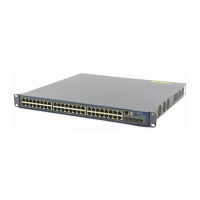
